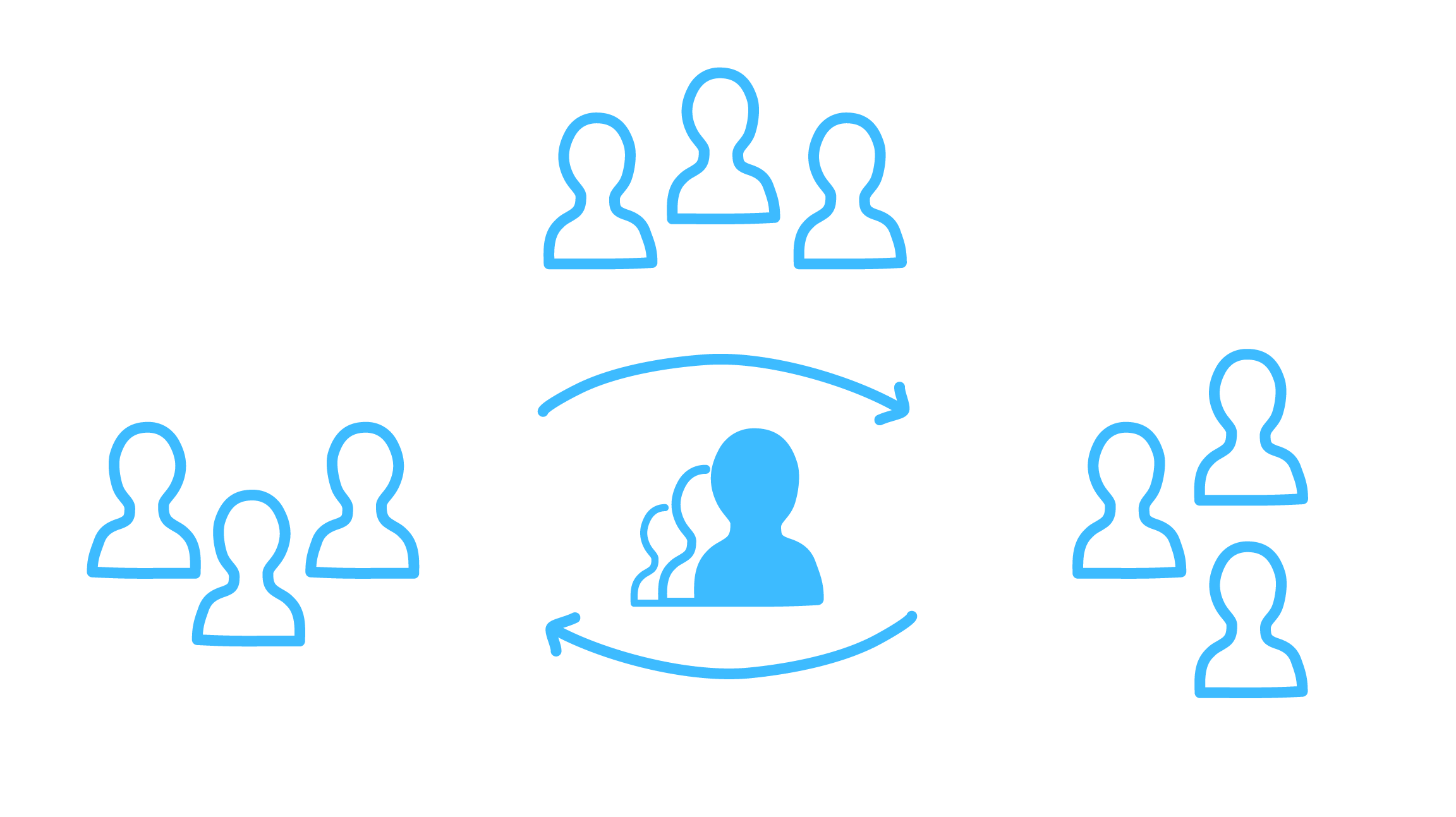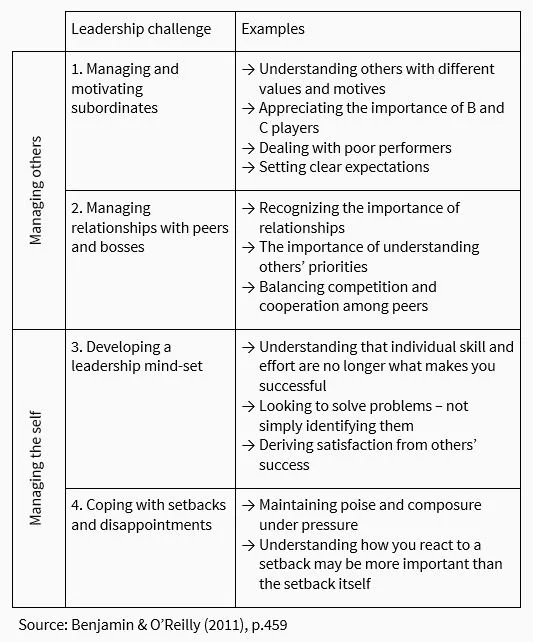What are the most common challenges young leaders face early in their careers? And how can they be supported so they can develop their capabilities while facing those challenges? As we have argued earlier in this blog, leadership is learned – not predetermined by one’s personality – and this learning happens mainly in practice, ideally in a context that provides opportunities for feedback and reflection. Without a doubt, the first transition to a leadership role is crucial in a leader’s career because it starts the process of learning to learn leadership. For first time leaders, this development step is probably the biggest: for the first time in their careers, success is not determined by their own effort, skills, and output, but by how they manage to work with others. The stakes are high: success and “successful failure” yielding constructive learning will result in a strong leadership development trajectory. On the other hand, failure without reflection and insight will derail leaders-to-be.
Transitions and challenges faced by first-time leaders
In order to better understand the related challenges, in a 2011 study[i] Beth Benjamin and Charles O’Reilly from Stanford University conducted in-depth interviews with 55 young leaders about how they developed as leaders and which obstacles needed to be overcome to succeed in leadership roles. The authors based their account on the concept of “transitions”, i.e. “struggling with something they had not encountered before”, of which they found three types in early careers: role transitions, business transitions, and personal transitions. While the first formal leadership role typically involves responsibility for team performance, business transitions are triggered by changes in the business life cycle, such as the launch of new initiatives, growth, or turn-around situations and the according responsibilities of the manager. Personal transitions stem from situations creating a value conflict, such as differences with a boss or an organization’s strategy, navigating ethically difficult situations, or dealing with professional failures. From a leadership development perspective, it is important to distinguish changes from transitions. In short, changes are the circumstances that change: a new role, a new boss, or a new strategy. Transitions, on the other hand, are the psychological processes “by which individuals work through, learn, and come to terms with the new challenges and conditions that change creates” (p.457). A key feature of those transitions is that behaviors, skills, and approaches that have been successful in earlier career stages become irrelevant or even destructive.
What is to be learned from young leaders’ challenges?
The challenges faced in these transitions, as reported by the young leaders, fall into four categories, examples of which are given in the following table.
First, adopting a leadership mind-set “involves developing a fundamentally different way of thinking about one’s role and what it means to be effective and successful” (p.466). That means that becoming a leader changes one’s job in its entirety, even if the formal role may not be all that different. A second finding worth emphasizing is that, based on the young leaders’ accounts, there is a “tendency for inexperienced managers to over-rely on previous strengths when entering unfamiliar territory” (p.467). And third, the transitions that young leaders cope with in becoming a leader go far beyond the change in role. Entering your first leadership role in a successful, growing business is one thing, but filling that role when it gets rough is a completely different story – perhaps one that’s more important for leadership development.
Implications for learning leadership
The authors focus on the implications of their findings on MBA teaching. They rightly note that “unlike our colleagues in medical schools, faculty too often are unfamiliar with the actual problems that managers encounter in their day-to-day business” (p.468). Additionally, it is difficult to define teaching formats and materials that allow for creating or replicating a learning context in the classroom that makes up for the absence of the real challenge and its social, personal, and emotional impacts.
At Management Kits we seek to integrate relevant research-based knowledge with practical learning tools to be applied in real-world organizational contexts and to immediate challenges (in contrast to cases). We have argued in earlier blog posts that leadership is primarily learned in practice and that real-world settings represent primary opportunities for blending action and learning. When it comes to leadership development of young leaders, real organizations have the additional advantage of having senior leaders with primary experience (although possibly without a framework to systematically reflect on this experience and convey it to others) who can play a role in mentoring younger peers.
The Leadership Development Kit supports organizations in defining a systematic, tailored approach towards LD that incorporates key insights from academic research. Click the button below to learn more.
[i] Benjamin, B. & O’Reilly, C. (2011). Becoming a leader: Early career challenges faced by MBA graduates. Academy of Management Learning & Education, 10(3), 452–472.




